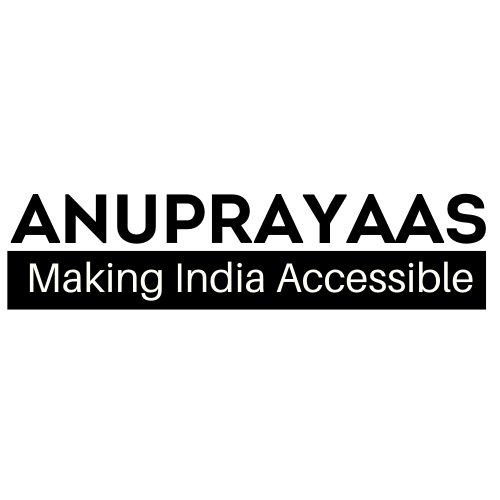
Shakti S Cajla
Co-Founder, Anuprayaas
Are you a parent of a special child? Are you confused about inclusive school and special schools ? Let me share my experience of studying in a inclusive school.
When I was a child, I studied in a school where differently-able students studied in the same class as us. I always thought it to be a norm till I visited a specially dedicated school for visually impaired students.
In last 7 Years I have worked with many visually impaired students and trained them on communication skills. And I have noticed a vast difference in the students who study in specially dedicated schools and the ones who study in all-inclusive schools.
I would like to share my experience of why parents of differently-able students should choose to send their child to a regular school:
Studied in Inclusive School:
When I was in 5th standard, a differently-able student joined our class. She had prosthetic for her legs to help her walk. And had vocal chord issue, due to which she could not speak properly. I remember our teacher gave us special responsibilities to help her around the school. I took it personally to take care of her and make sure that she faces no issues. As a child, it made me more sensitive and empathetic towards her needs and challenges. It also helped me develop patience.
Normalizing Disability:
Having a differently-able student in the class helped to normalize disability. We became comfortable in interacting with students who were differently-able and learnt to treat them equally. Not sympathetically but equally. If schools are inclusive, disability awareness and sensitization happen automatically. Students grow into better individuals who are sensitive to others and know how to handle difficult situations.
Confidence Building: It helped her to grow into a confident student who was as good as anyone else academically and in various activities that she could participate in. When differently-able students study in specially dedicated schools, they miss the huge part of the interaction and exposure, that an all-inclusive school provides. I have seen students grow low in confidence and social skills. A lot of them have never interacted with any other student apart of their own school mates. This leads them to grow into individuals who are alienated from society and confined to their own group.
Emotional Growth: As we grew and studied together, I and my differently-able classmate chose our friends. So when she started spending more time with her preferred friends, I was not offended. When she got punishments for not doing homework like others, we were not surprised.
Sometimes, I find people helping specially-able colleagues and expect them to be grateful. Or expect them to be super good humans who always do the right things. People feel bad when they do not receive a kind of response they were expecting. It’s important for us to realize that irrespective of our abilities we are human and equal. Our choices, our flaws, & our decisions have nothing to do with ability or disability.
Creating Better Society: In the end, I want to conclude by requesting anyone who has a differently-able child, to send him/her to all-inclusive school and not special schools. I agree that special schools might have focused care and facilities, however, your child will learn social skills only when they are in an environment where we treat everyone equally. Moreover, you may be doing a favor to society by sending your child to all-inclusive school. As it will help all other students in the school to grow into empathetic and caring individuals. After all, we are responsible to create the society we want to live in.
Follow us on LinkedIn to know more about the work we do for inclusion and accessibility: https://www.linkedin.com/company/anuprayaas/

